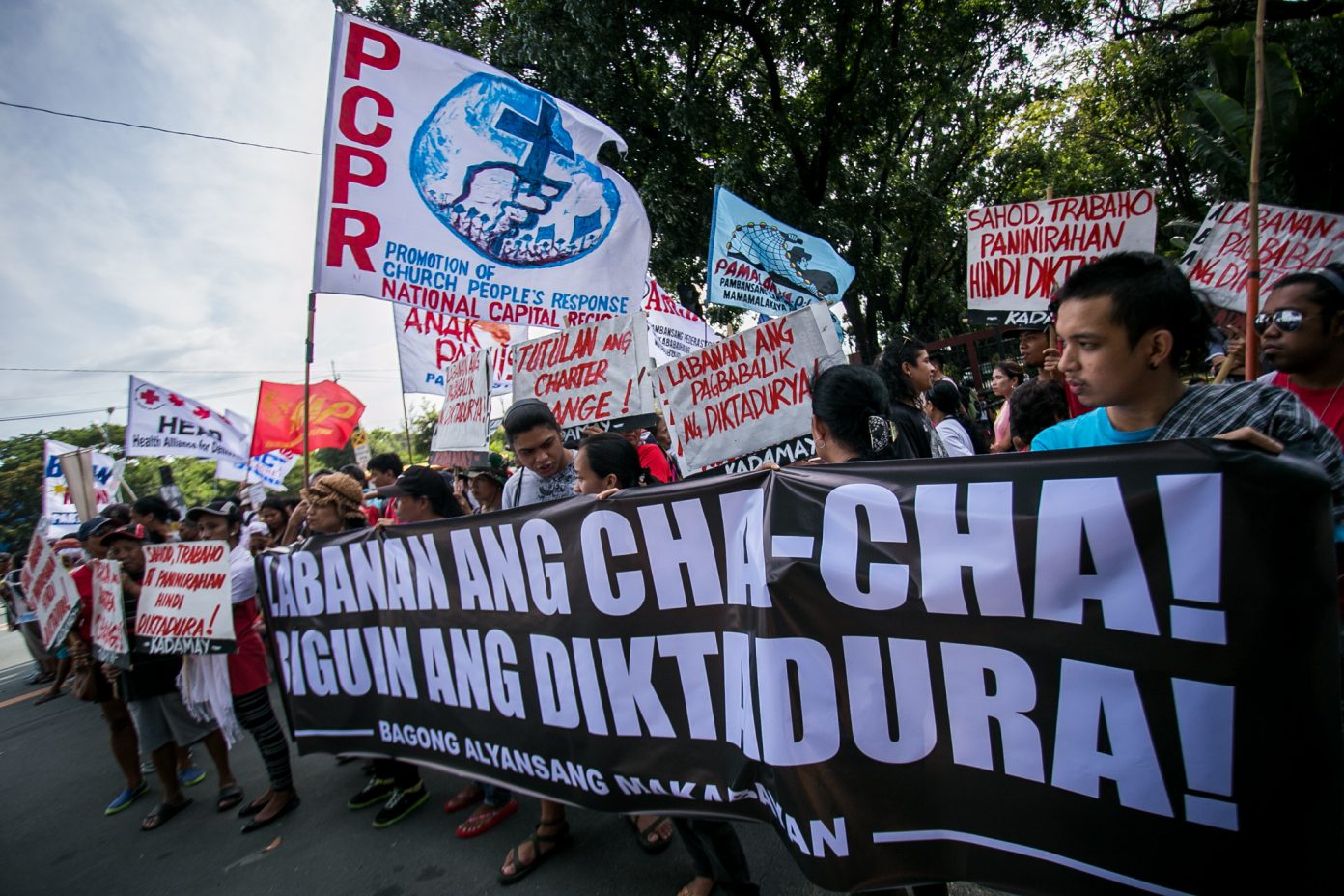There is once again a push to change or amend the Philippine Constitution. The opening salvo is the signature campaign for a People’s Initiative to amend the constitution that will enable the House of Representatives and Senate to revise or amend the constitution as a constituent assembly voting jointly rather than separately.
This move which appears to have been initiated by Speaker Martin Romualdez is being carried by house representatives and local government officials all over the country using public funds and giving financial aid to those who sign the petition.
This is not really a people’s initiative. At the urging of President Bongbong Marcos, Senate President Miguel Zubiri has agreed to study the economic provisions of the existing constitution and consider the possibility of charter change.
Apparently, changing the constitution is part of the agenda of the Marcos administration.
Why is the Marcos administration rushing to change the constitution? Is it really necessary? Who will benefit from the Charter change?
The recent ads that appeared on TV to promote the charter change give the impression that the constitution that was crafted after EDSA People Power is the source of the lack of economic, social, educational, and political progress in the country.
This is evident in the use of the term “EDSA-pwera – a play on the word “etcha-pwera,” meaning “neglected”. It asserts that the Constitution has not benefited the ordinary people. Thus, there is a need for charter change.
The primary reason that has been given for changing the constitution is to have new economic provisions favorable and beneficial for businesses – especially foreign investors and their local partners.
This means eradicating totally nationalist economic provisions. However, many senators insist that even without changing the constitution, congress under the previous administration was able to pass laws that made it easier for foreign investors to operate (e.g. one hundred percent ownership of manufacturing plants, long-term land lease, oil exploration in partnership with government, etc.).
What has not been changed is the exclusive ownership of land by Filipinos. Foreign companies who have pledged billions of dollars in investment have not demanded changes in the constitution.
Nor is charter change included in the government’s long/medium-term economic plan. If it is not necessary for economic reasons, what really is the ulterior motive for the Marcos-Romualdez urgent move for charter change?
We can only suspect that it is political. Beyond the economic provision, the goal could be changing the form of government (parliamentary or federal). This could also include changing the term limits. If this is true, then this will benefit the Marcos-Romualdez political dynasty. This could be a means for perpetuating themselves in power.
Is this the reason why Duterte who was in favor of charter change while he was president is now opposed to it because it can affect VP Sara Duterte’s presidential ambition? A change to the parliamentary form of government will mean doing away with the Senate. This could explain why most senators are lukewarm to the move for charter change.
The 1987 constitution is the child of the EDSA People Power Revolution. Besides guaranteeing basic rights and the rule of law, the constitution aims to prevent a repeat of Marcos’s perpetual authoritarian rule.
This explains the term limit for the president. The anti-dynasty provision is meant to do away with political dynasties – although Congress has not yet come up with enabling laws to make it a reality. The nationalist economic provisions are meant to prevent foreign domination of the economy allow the growth of Filipino business and spur national industrialization.
We must, therefore, be wary of moves to change the constitution designed to allow the perpetuation of power of political dynasties. A change to a parliamentary form of government is not realistic in the absence or lack of genuine political parties.
The Philippines faces a lot of problems – economic, political, social, educational, and environmental. Charter change is not a solution to these problems. It may even lead to a worsening of these problems. It will not benefit the Filipino people – especially the poor.
It will only benefit the Marcos-Romualdez political dynasty. The Filipino people and the Church in particular must oppose this self-serving move.
Fr. Amado Picardal is a Redemptorist priest and human rights and peace advocate. He was executive secretary of the CBCP Episcopal Committee on Basic Ecclesial Communities. He also served as co-executive secretary of the Commission of Justice, Peace, and Integrity of Creation of the Union of Superiors General in Rome.







